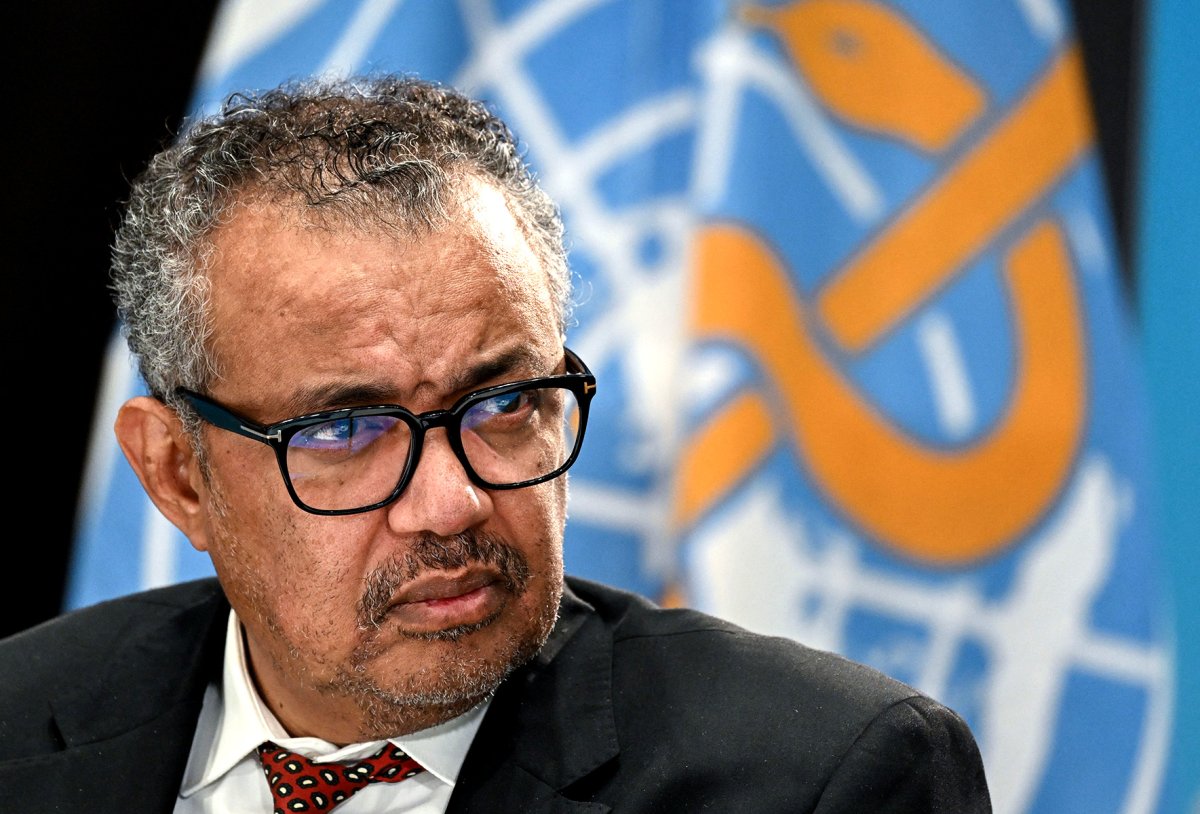The recent addition of North Korea to the World Health Organization (WHO) executive board has reignited criticism of the global agency.
Last week, the WHO, led by Tedros Adhanom Ghebreyesus, announced that 10 of its members would be granted the ability to designate a person to the organization's executive board. North Korea, a known United States adversary, was among the list of new board members.
Other countries joining the executive board are Australia, Barbados, Cameroon, Comoros, Lesotho, Qatar, Switzerland, Togo and Ukraine.
The announcement is the latest development to yield U.S. criticism for the WHO, which has faced ongoing scrutiny following its response to the COVID-19 pandemic. The complaints reached a breaking point in 2020, when then-President Donald Trump moved to withdraw the United States from the organization, a lengthy process that requires a year's notice.
Trump claimed Chinese influence controlled the organization and that the WHO's slow response to the COVID-19 pandemic had endangered the lives of Americans. But President Joe Biden blocked the withdrawal in one of his first moves as president in 2021.
Newsweek reached out to the WHO by email for comment.

However, distrust in the WHO, a specialized agency of the United Nations, remained. Recently, it exacerbated when the agency announced North Korea's ability to add a member to the executive board.
The decision drew criticism, with many experts commenting on North Korea's violation of human rights.
"As one of the world's worst violators of human rights at war with its own population, North Korea is clearly an enemy of public health at home and abroad," Jamie Metzl, the founder and chair of OneShared.World and a former member of the WHO expert advisory committee on human genome editing, told Newsweek. "But because public health is global and we are all connected in our interdependent world, the WHO is probably right to err on the side on inclusion."
Others were more critical of the decision.
"BREAKING: North Korea, a regime that starves its own people, was just elected to the @WHO Executive Board. No joke," international human rights lawyer Hillel Neuer tweeted on Wednesday morning.
BREAKING: North Korea, a regime that starves its own people, was just elected to the @WHO Executive Board. No joke: https://t.co/cBmNO6AmvJ pic.twitter.com/661rILwqEY
— Hillel Neuer (@HillelNeuer) May 31, 2023
"What this means is that one of the world's most horrific regimes is now a part of a group that sets and enforces the standards and norms for the global governance of health care," Neuer added in a follow-up tweet. "It is an absurd episode for a key U.N. agency that is in much need of self-reflection and reform."
2/ What this means is that one of the world's most horrific regimes is now a part of a group that sets and enforces the standards and norms for the global governance of health care. It is an absurd episode for a key U.N. agency that is in much need of self-reflection and reform.
— Hillel Neuer (@HillelNeuer) May 31, 2023
Neuer added that North Korea will remain part of the WHO's executive board for at least the next three years, allowing current supreme leader of North Korea Kim Jong Un to influence the WHO's agency and policies.
North Korea has been elected to the WHO Executive Board.
— Mattea Merta (@MatteaMerta) May 31, 2023
This means they will help set and enforce standards for global governance of health care.
The whole UN system is a joke.
Global policy and political advisor Mattea Merta echoed Neuer's concerns, and tweeted. "The whole UN system is a joke."
Others pointed out how Taiwan was left out of the executive board additions.
🇰🇵 Shocked to see North Korea, a regime infamous for starving its own people, elected to @WHO Executive Board. Meanwhile, Taiwan, an exemplary COVID response leader, is left out. It's disheartening that a country denying its COVID crisis is rewarded over a nation that excelled… pic.twitter.com/jvHZubLI7w
— Ankit Bhuptani 🏳️🌈 (@CitizenAnkit) May 31, 2023
"Shocked to see North Korea, a regime infamous for starving its own people, elected to @WHO Executive Board. Meanwhile, Taiwan, an exemplary COVID response leader, is left out," human rights activist Ankit Bhuptani tweeted. "It's disheartening that a country denying its COVID crisis is rewarded over a nation that excelled thanks to Wolf Warriors."
Bhuptani was referencing China's Wolf Warrior diplomacy, named after Chinese film Wolf Warrior 2, and contrasting China's confrontational COVID-19 response to Taiwan's.
The term is used to describe the confrontational and combative diplomacy exhibited under the Xi Jinping administration, which has been in effect through the COVID-19 pandemic.
Uncommon Knowledge
Newsweek is committed to challenging conventional wisdom and finding connections in the search for common ground.
Newsweek is committed to challenging conventional wisdom and finding connections in the search for common ground.
About the writer
Anna Skinner is a Newsweek senior reporter based in Indianapolis. Her focus is reporting on the climate, environment and weather ... Read more
To read how Newsweek uses AI as a newsroom tool, Click here.





